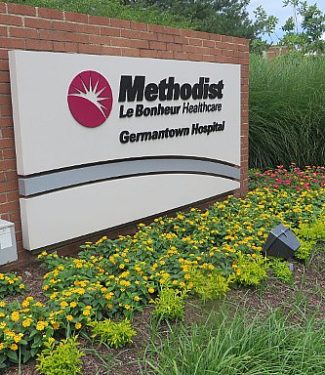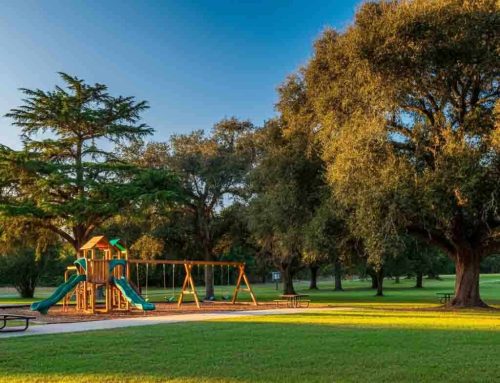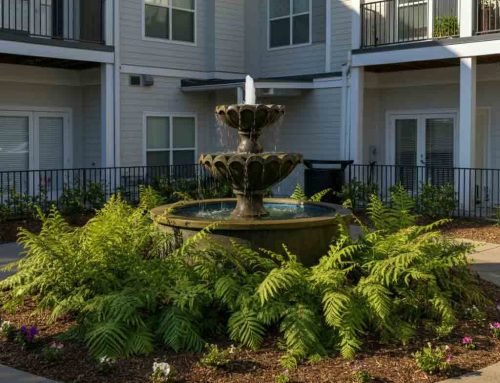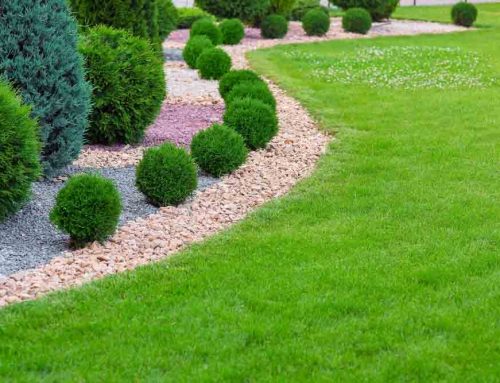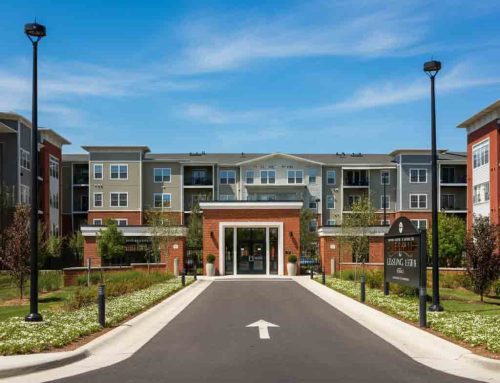Pugh’s Earthworks
Creating an inviting and Therapeutic Hospital Landscape Environment is not just about interior design. The exterior plays a crucial role in shaping first impressions and enhancing the overall experience for patients, staff, and visitors alike. In this blog post, we will explore how Pugh’s Earthworks hospital commercial landscaping can transform healthcare facilities into vibrant, healing spaces that promote well-being and environmental sustainability. From the strategic placement of green spaces and flower beds to the importance of lighting and lawn care, we will provide valuable insights for healthcare facilities, property managers, and landscaping companies looking to elevate their outdoor spaces.
The Impact of Green Spaces in Hospital Settings
Green spaces within hospital environments offer more than just aesthetic appeal. Research has shown that green spaces can significantly enhance mental health and accelerate patient recovery. When patients have access to nature, whether through views from their rooms or direct physical contact, stress levels tend to decrease, and mood improves. This positive effect is not limited to patients; hospital staff also benefit, experiencing reduced burnout and increased job satisfaction.
Incorporating green spaces into hospital landscapes involves more than planting a few trees. It requires careful planning and design to ensure functionality and accessibility. Pathways should be wide enough for wheelchairs, and seating areas need to accommodate different needs. It’s essential to select plant species that are low maintenance and non-allergenic to create an environment that is both safe and soothing.
Hospitals can engage with local communities through their green spaces. Public access gardens encourage community involvement and provide educational opportunities focused on sustainability and horticulture. By fostering these connections, hospitals can enhance their reputation and integrate more deeply into the community fabric.
Designing Hospital Commercial Flower Beds
Flower beds are a visual focal point in any landscape design, and in hospitals, they can provide a burst of color and life. Carefully chosen plants can have therapeutic effects, offering a sensory experience that engages sight and smell. Colorful blooms can evoke positive emotions, while fragrant plants like lavender and rosemary can promote relaxation. When designing hospital commercial flower beds, it’s important to consider the seasons. A well-thought-out plan ensures that there is always something in bloom, providing year-round interest. Native plants are often a wise choice as they are adapted to local climates, requiring less water and maintenance while supporting local wildlife and biodiversity.
Accessibility is another critical factor. Flower beds should be designed to allow easy viewing from wheelchairs and beds. Raised flower beds can make gardening activities accessible to patients and staff, offering a therapeutic outlet that promotes physical activity and mental well-being.
The Role of Commercial Lighting in Hospitals
Effective commercial lighting is vital in creating a safe and welcoming hospital environment. Proper lighting enhances visibility, increases safety, and can even influence mood and circadian rhythms. In hospital settings, lighting needs to be adaptable to cater to diverse requirements, including wayfinding, security, and aesthetic appeal. LED lighting is a popular choice for hospital commercial lighting due to its energy efficiency and longevity. These lights can be strategically placed along pathways and parking lots to ensure safety and increase visibility, particularly during nighttime hours. Additionally, LED lights can be adjusted in terms of color and intensity to create different atmospheres and support healing environments.
Hospitals should consider integrating smart lighting systems that allow for automated adjustments based on time of day or specific events. This technology can optimize energy use and enhance user experience by providing appropriate lighting levels for different tasks and times, contributing to both sustainability goals and operational efficiency.
Pugh’s Earthworks Ensuring Effective Hospital Commercial Lawn Care
Lawn care is an essential component of hospital landscaping, providing a green blanket that ties together various elements of the landscape. A well-maintained lawn can create a clean, professional appearance that enhances the hospital’s image and provides a serene environment for relaxation and reflection. Effective hospital commercial lawn care by Pugh’s Earthworks requires a balance of aesthetics and environmental stewardship. Sustainable practices, such as utilizing drought-resistant grass varieties and implementing efficient irrigation systems, can reduce water consumption and maintenance costs. Additionally, regular mowing, fertilizing, and aerating are crucial to keeping lawns healthy and vibrant.
Hospitals can further enhance their environmental efforts by incorporating organic lawn care practices. Avoiding chemical pesticides and fertilizers not only protects local ecosystems but also contributes to a safer environment for patients, staff, and the community. This commitment to sustainability can be a powerful message that aligns with broader healthcare goals of promoting health and wellness.
Integrating Sustainable Practices in Hospital Landscaping
Sustainability is increasingly important in every aspect of hospital operations, including landscaping. By adopting greener practices, hospitals can reduce their environmental footprint while enhancing the quality of their outdoor spaces. This approach aligns with the broader healthcare objective of promoting overall health and well-being. Water conservation is a key focus area. Installing rain gardens, using native plants, and implementing smart irrigation systems are effective strategies for reducing water use. These practices not only save resources but also enhance the landscape’s resilience to climate variability.
Hospitals can also adopt green building principles, such as using permeable paving materials and incorporating green roofs into their designs. These features help manage stormwater runoff, reduce urban heat islands, and improve air quality, creating a more sustainable and pleasant environment for all.
Implementing Therapeutic Gardens in Hospital Landscapes
Therapeutic gardens are specially designed spaces that contribute to healing and rehabilitation. These gardens offer patients, families, and staff a place for reflection, relaxation, and rejuvenation, supporting the healing process on multiple levels. Designing a therapeutic garden involves understanding the needs of its users. Features such as accessible paths, shaded seating areas, and sensory plants ensure that everyone can enjoy the space. The garden’s layout can incorporate elements like water features, sculptures, and meditation areas to enhance the therapeutic experience.
Collaboration with healthcare professionals can ensure that therapeutic gardens address specific patient needs, such as mobility challenges or cognitive impairments. By integrating these gardens into the overall hospital landscape, facilities can offer a holistic approach to care those addresses both physical and mental health.
The Importance of Community Engagement in Hospital Landscaping
Engaging the local community in hospital landscaping projects can yield numerous benefits. Community involvement fosters a sense of ownership and pride, strengthening the hospital’s ties with its neighbors and enhancing its public image. Community gardens are a popular way to engage local residents, offering space for growing vegetables and plants. These gardens can provide educational opportunities and promote healthy eating habits, aligning with the hospital’s mission to improve community health.
Volunteer programs can also play a role in maintaining and enhancing hospital landscapes. Schools, local organizations, and corporate partners can contribute time and resources, creating a collaborative effort that benefits everyone involved. This collective approach not only improves the landscape but also builds strong community relationships.
Navigating Challenges in Hospital Landscaping
Hospital landscaping presents unique challenges that require thoughtful planning and execution. Balancing aesthetic appeal with functionality, safety, and sustainability can be complex, but with the right approach, these challenges can be successfully addressed. One common challenge is maintaining accessibility while ensuring security. Landscapes must be designed to accommodate patients with mobility issues, while also considering the safety and privacy needs of the facility. Strategic plant placement, appropriate lighting, and clear signage can help achieve this balance.
Budget constraints can also impact landscaping projects. Hospitals can stretch their budgets by prioritizing sustainable practices that reduce long-term maintenance costs. Leveraging community partnerships and seeking grants are additional ways to fund landscaping initiatives without compromising quality.
Leveraging Technology in Hospital Landscaping
Technology plays a vital role in modern hospital landscaping, offering innovative solutions for design, maintenance, and sustainability. By integrating technology, hospitals can enhance the efficiency and effectiveness of their outdoor spaces. Landscape design software allows for precise planning and visualization, helping teams to create cohesive and functional layouts. These tools enable designers to experiment with different elements, ensuring that the final design meets all required criteria.
Smart irrigation systems use sensors and weather data to optimize water use, reducing waste and ensuring that plants receive the right amount of moisture. This technology not only conserves resources but also maintains the health and appearance of the landscape, contributing to its overall success.
Conclusion
Hospital commercial landscaping is a powerful tool for creating welcoming, therapeutic environments that enhance the healthcare experience for patients, staff, and visitors. By focusing on green spaces, sustainable practices, and community engagement, healthcare facilities can transform their outdoor areas into vibrant spaces that promote healing and well-being.
With thoughtful planning and execution, hospital landscapes can serve as extensions of the care provided within, offering solace and rejuvenation to all who encounter them. For those looking to further explore the possibilities of hospital landscaping, collaboration with professional landscapers and continuous learning can lead to innovative and impactful designs that stand the test of time.
Pugh’s Earthworks Commercial Landscaping for Offices, Shopping Centers and Hospitals
Pugh’s Earthworks is a family-owned business that has been providing commercial landscaping services to businesses, hospitals and more in Memphis, Nashville, Littlerock and Southaven since 1988. We have been in the landscaping and lawn maintenance business for over 40 years. We are certified by the Tennessee Landscape Contractors Association, licensed by the Tennessee Department of Agriculture, and have a full-time staff of certified landscaping technicians. Our years of experience allow us to provide our customers with quality workmanship at an affordable price. We provide commercial landscaping services to businesses, shopping centers, schools, hospitals and more. Our service area includes Memphis, Nashville, Littlerock and Southaven. We offer a wide range of services including:
commercial lawn maintenance
affordable monthly program rates
edging & trimming
lawn treatments
leaf blowing
tree removal
stump grinding (stump removal)
For more information about our commercial landscaping services or to schedule an appointment with one of our experts today!
Pugh’s Earthworks
We operate 5 landscape centers, in 3 states.
Our headquarters is in Memphis, Tennessee. We also operate landscape offices in Nashville, Jackson TN, Southaven MS and Little Rock AR. Our firm provides monthly grounds maintenance services for commercial clients. If you are seeking assistance with Landscaping or Lawn Maintenance services, please give us a call or send us a message via the contact form below. We do offer FREE Estimates.
Headquarters
Phone: (866) 207-4734


